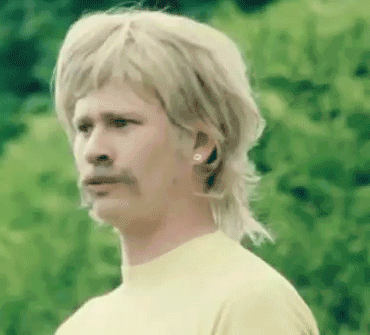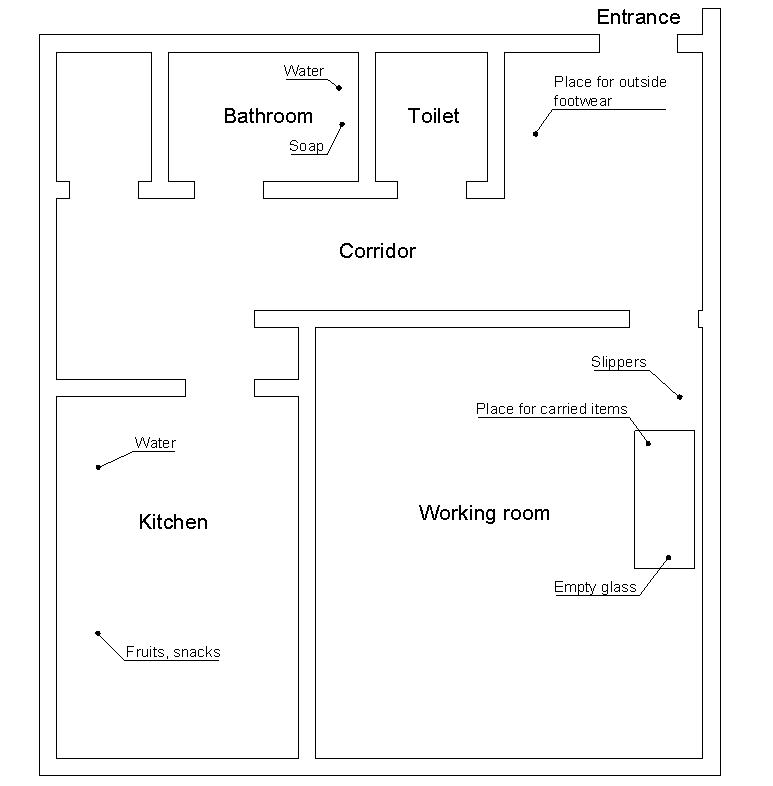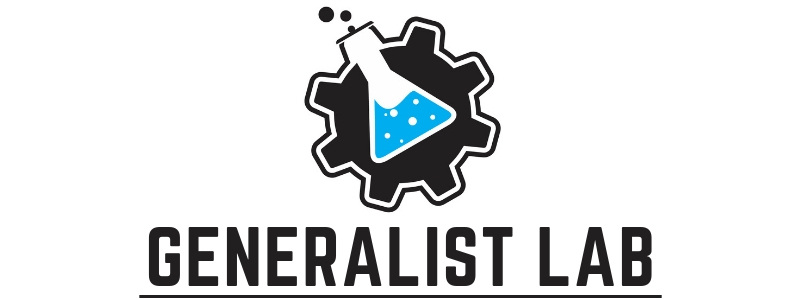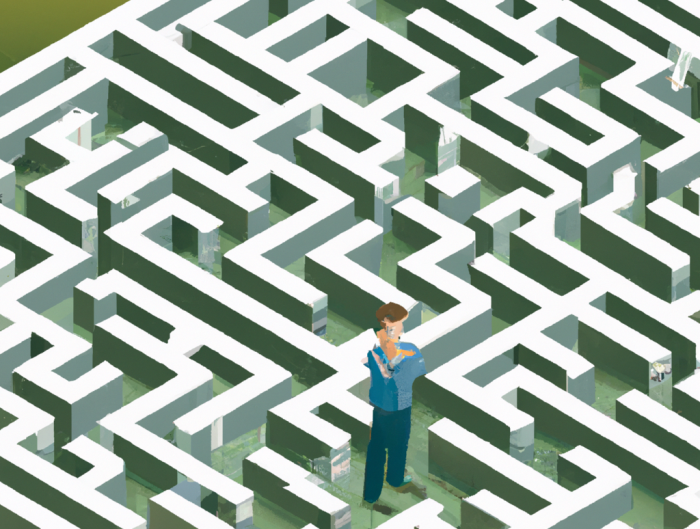Overthinking – Know the Enemy
Thinking is wonderful. What our civilization has been able to achieve so far is mind-blowing. However today we, especially the new generations are faced with a problem of excessive thinking, what’s often referred to as overthinking. By classical definition overthinking is thought process that consumes mental power (energy) and does not add any additional value.
Anxiety and overthinking are growing concerns. This can hardly be denied. When evolution is slow, computers are fast, we get this:

Relative search volume for term “overthinking”. Source: Google trends (same goes for “anxiety”)
What causes overthinking?

Nick Ulivieri
Our bio structure is simply not ready for information revolution. In the far past life was simple in the context of things you should consider and do. People had to survive the day and that was about it. Today we have freedom, internet, much higher cognitive abilities, all of which comes with an unwanted bonus of mental overload which results in unsettled mind.
Handling information inflows, which are influences eventually is the responsibility of each individual now.
How to stop overthinking?
Methods to fight overthinking are very similar to overcoming depression. If you haven’t read that piece and are looking for ways to overcome low periods, that one might be of value to you.
Use Awareness to know the direction
Excessive thinking is alright if you keep wandering about new ideas, plans, scheduling and remembering the wonderful weekend you just had. Whole another thing if you are stuck in the cycle of adverse thoughts. Overthinking on negatives is a downwards spiral to depression. First step is to become aware of your thoughts and to evaluate if the flow of thoughts is headed towards a better you, or making you worse off.
If you notice you are dwelling on yet another time you have said something stupid and how that might affect the future relationship between you and some other individual ask yourself: “what the f|_|C|/?”
I am skipping a lot, but you got the point. Once you know which direction is the thought train going, you can take that ride or change trains.
Meditation
 I started looking for peace of mind when I grasped a hairs of an idea that I was headed the wrong way with that thinking. Personally, I think meditation has the most benefits: it’s free, you can do it whenever, wherever and however you want, as today there are shit loads of meditation techniques. Demand driven supply. Find your sweet spot.
I started looking for peace of mind when I grasped a hairs of an idea that I was headed the wrong way with that thinking. Personally, I think meditation has the most benefits: it’s free, you can do it whenever, wherever and however you want, as today there are shit loads of meditation techniques. Demand driven supply. Find your sweet spot.
Sensory deprivation tank
These weird things are also often called insulation tanks perhaps require the article of their own. On this one you will have to do the research on your own. All I can say – I was pleasantly surprised. First time I went there – I experienced the bliss of not thinking. Pure void.
Physical work
 I don’t train professionally and I ain’t a gym junky, so I can’t tell if “working in a gym” qualifies for natural overthinkers, but I discovered, that honest physical exhaustion calms the mind.
I don’t train professionally and I ain’t a gym junky, so I can’t tell if “working in a gym” qualifies for natural overthinkers, but I discovered, that honest physical exhaustion calms the mind.
Persistent work is a hardest barrier able to hold man from thinking. Collen McCullough
This is my direct translation, so excuse me. On a separate note: physical work dulls the mind as well.
Other methods to calm the mind
Music – get proper on-ear headphones. You shall be insulated, my friend. Just you and your favorite music. Don’t overlook it. If you love music, but doubt if your brain could be shut down, you might not yet found your perfect sound.
Travelling is a great way to change a direction of thinking. New places, new pathways. During your travel time different ports in your brain open up. I have observed this several times now. If you are stuck at negative spiraling thought patterns, planning a journey might be your answer.
Limit exposure to Internet and smartphone – always a great idea. Get your dopamine in real life. More rewarding, more sustainable, less anxious.
If you haven’t found a suit for you so far, my examples of overthinking might brighten your day.
Two examples of overthinking
This year especially during trips I had realized how deep efficiency was embedded in me. During one occasion I had even discovered some of my motor behavior was arranged so the desired action was maximally efficient. The following examples of overthinking, which are technically over analyzing tap into efficiency big time.
#1 Example of Overthinking: Creating an algorithm
Currently I work (a.k.a. do my stuff) at home. During workdays of the week I take a break and walk 5 minutes to local restaurant for daily menu. One hot summer day, half way back with a hunger left behind already my mind was planning everything in it’s power to accelerate the continuation of work and maximize uninterrupted time as soon as I get home.
I picked the the bundle of keys from my pocket and half way from restaurant to my flat I walked with key in my right hand positioned already so I would not waste time at the doorstep.
The next one is more fun. But I’ll clue you in:

So this is a rough plot of the flat. That day, before I could settle down for the second half of the day, I had bunch of micro tasks and conditions to fulfill.
Micro tasks:
- remove outside footwear near the entrance;
- put slippers on, which are left at the working room;
- remove carried items (wallet, mobile, keys) and place them at their usual spot, at the side of the desk at working room;
- take a leak at the toilet;
- wash hands and feet (I don’t wear socks when it’s +30°C);
- place socks at working room;
- fill up the empty 0,5l glass with water and place it on the desk (drink at the tap, while there, so postponing the refill of glass while working);
- pick snacks and fruits from the kitchen at bring them to the desk at working room.
Additional conditions:
- can not walk barefoot in the corridor after washing the feet. The carpet in the corridor needs vacuuming and I would collect dust, hair etc with my wet bare feet.
So I was making an algorithm of actions to achieve the minimum meters walked/time spent before I could simply continue to work with all of the above micro tasks completed.
When I figured out the sequence, a conscious thought followed: does everyone do that..?
#2 Example of Overthinking: Before installing a new app
 I still use Galaxy S4, which is around 4-5 years old. The picture on the right is from my experimental November last year. Occasionally me and my friends go out. They mocked me for years for not installing Uber or Taxify (cheaper taxi alternatives) apps on my phone. I have an answer.
I still use Galaxy S4, which is around 4-5 years old. The picture on the right is from my experimental November last year. Occasionally me and my friends go out. They mocked me for years for not installing Uber or Taxify (cheaper taxi alternatives) apps on my phone. I have an answer.
You perhaps remember when in the old days, you installed a program on window, removed it through “add or remove”, but accidentally entered “Program Files” and found out there are folders of uninstalled programs, that still has some files. The uninstall isn’t clean.
Now let’s join the pieces in the array of arguments on why would I refuse to use modern transportation via internet on the smartphone.
- Each active application consumes energy shortening battery life on the charge and even more importantly – battery life cycle as a whole;
- Each application consumes RAM, which this old piece of crap has only 2GB of. So my phone will work slower, which is even more frustrating, because it now affects a dozen of day to day tasks;
- I would only use these apps with my friends out in the city. They use it. They can call it and they do;
- New phone? It’s an expense, rather than investment. I prefer spending my money on assets, that generate cash flow or at least appreciate instead of depreciate in value over time.
Of course I am missing details here. But the sum of it will still be: no, thanks. I have a good set of rationalizations it I lack solid arguments supporting my actions.
Can’t stop thinking
Overthinking is harsh. The worst thing is: it depletes the energy. You are not alone. I have no clue if the examples above paint a good picture. But my reality is simple:
I can not stop thinking during the day. Only 5% of my meditation sessions are successful in creating an absence of thoughts. I seek presence, but it’s like a forbidden fruit. If you can’t fight it, flow with it. Only put effort in directing it, so your overthinking works for you, instead of against you.
It’s almost impossible for most people to see technology as the tool rather than the end. People get trapped in thinking that anything in the environment is to be taken as a given. It’s part of the way our nervous system works. But it’s dangerous to take it as a given because then it controls you, rather than the other way around. That’s McLuhan’s insight, one of the bigger ones in the twentieth century. Alan Kay





Leave A Reply